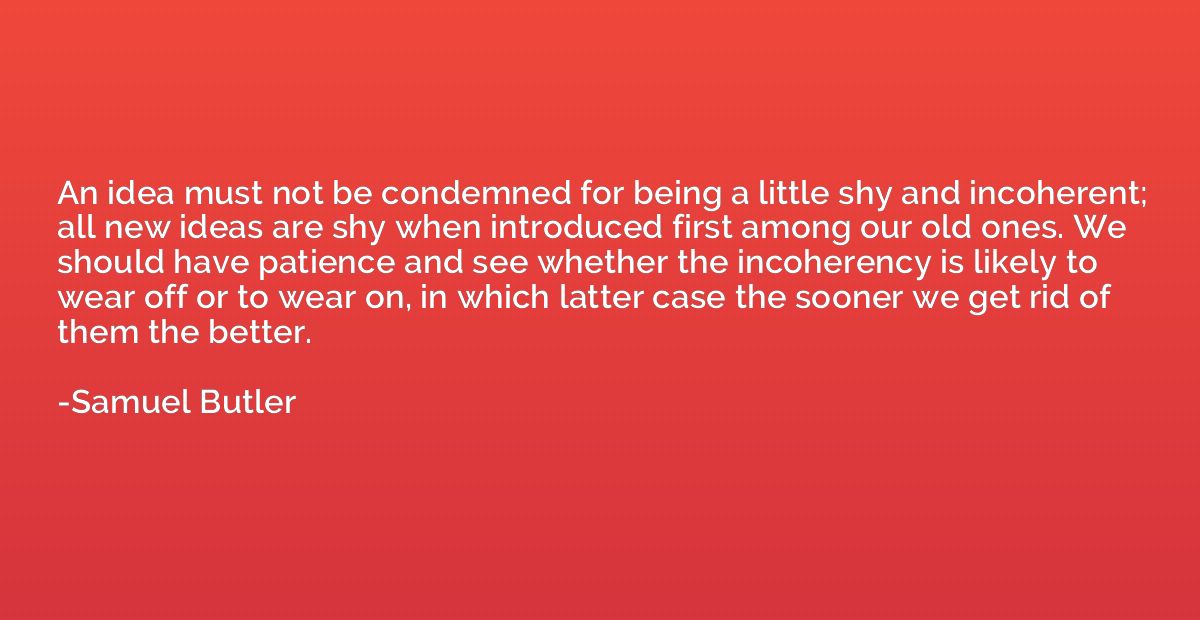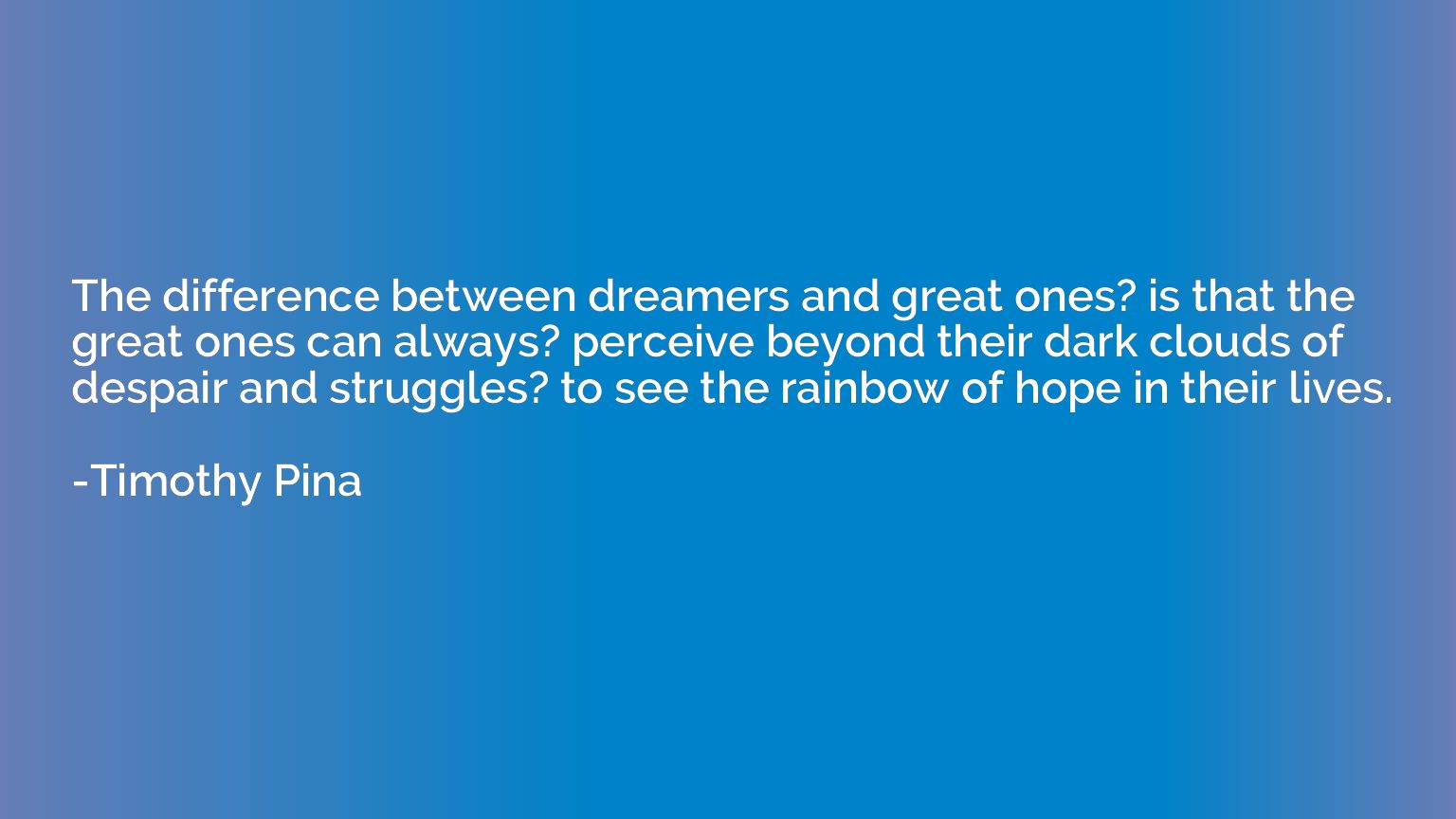Quote by Samuel Butler
An idea must not be condemned for being a little shy and incoherent; all new ideas are shy when introduced first among our old ones. We should have patience and see whether the incoherency is likely to wear off or to wear on, in which latter case the sooner we get rid of them the better.

Summary
This quote emphasizes the importance of not immediately dismissing new ideas that may initially seem timid or unclear. It suggests that all novel ideas face resistance when first introduced to existing beliefs. The quote advocates for patience in assessing the potential of these ideas, allowing time to determine if their perceived flaws are temporary or long-lasting. If the incoherency persists, the quote suggests it is best to discard such ideas sooner rather than later.





![My name is `Abdu'l-Bahá [literally, Servant of Baha]. My qu](https://quotation.io/quotes/name-abdul-baha-literally-servant-baha-qualifica.jpg)








